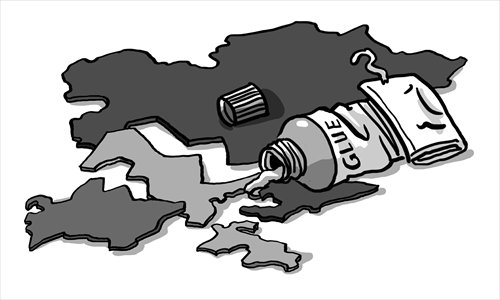Wider politics hampering Central Asian efforts for integration

Kazakhstan, Uzbekistan, Kyrgyzstan, Tajikistan and Turkmenistan, the five Central Asian countries that gained independence after the collapse of the Soviet Union in 1991, share similar historical and cultural backgrounds.
They formed close economic relations during the Soviet period, with the transportation system, energy supply and food security being brought under a unified system.
Since their independence, these countries have tried regional integration in order to restore past economic relations and resolve their financial plights.
In 1994, Kazakhstan, Uzbekistan and Kyrgyzstan signed an agreement creating an economic union aimed at establishing a Central Asia Economic Union based on economic integration. In 1998 it became the Central Asian Economic Cooperation (CAEC) with the participation of Tajikistan.
However, the integration of Central Asian countries exists only on paper. Due to a lack of funds, the realization of economic cooperation experienced great difficulties.
In 2002, the CAEC was renamed the Central Asian Cooperation Organization. It was hoped that cooperation in politics and security could make up for the lack of a driving force in the economic field.
In 2005, the organization was merged into the Eurasian Economic Community, marking an end to regional integration.
Although a Central Asian Union was proposed by Kazakhstan President Nursultan Nazarbayev later, it didn't receive an active response.
There are various reasons why it is so difficult for Central Asian countries to become integrated.
First, these countries face the heavy task of establishing themselves as modern sovereign states after independence. Almost all political powers within these countries have used nationalism to call for public support, and the political will for integration, which requires sovereignty's demise, is lacking.
Meanwhile, the economic gap between these Central Asian countries has been expanding.
Currently, the GDP of Kazakhstan is 30 times that of Kyrgyzstan and Tajikistan. Central Asia boasts rich strategic resources, but the distribution is imbalanced. These resource-rich countries are unwilling to share with neighboring countries. Due to a lack of economic complementarities, these countries cannot form a united development force.
In addition, the diplomatic strategy of Central Asian countries attaches great importance to big powers, resulting in the decline of interdependence. These are all inland countries, which somewhat constrains their foreign economic relations. After independence, to raise their international status and improve economic conditions, they chose to form relations with developed countries.
Frictions between these countries have also dimmed mutual trust. During the process of economic development and solidifying sovereignty, they didn't take the interests of their neighboring countries into full consideration, especially in the case of the utilization of water resources.
Border issues have escalated tensions, and disputes around the Fergan areas between Uzbekistan, Kyrgyzstan and Tajikistan have still not been resolved.
The negative impact of geopolitical factors plays a role, too. Russia, which has long had an influence in the Central Asia region, has been trying to prevent other superpowers from taking its position, while also preventing Central Asian countries from establishing an integration organization in order to dominate regional cooperation.
After Russia joined the Central Asian Cooperation Organization in 2004, the organization was soon merged into the Russia-dominated Eurasian Economic Community.
The geopolitical situation in Central Asia is complex. The always fierce competition between big powers has increased discrepancies within the region. The rivalry between the US and Russia in military and economic fields has polarized Central Asian countries. The EU, India, Japan, Turkey and Iran have also claimed their interests in this region and stamped their influence on regional economy, security and culture.
Under the current global situation, discrepancies between regional countries are increasing, as is their wariness. Integration is difficult, both politically and economically. All countries are strengthening their own national sense and rejecting non-mainstream groups.
All these things reflect the relations among these countries. A multi-polar cooperation system involving outside countries would be very attractive for Central Asia.
The author is a researcher at the Center of Shanghai Cooperation Organization studies at the Chinese Academy of Social Sciences. opinion@globaltimes.com.cn